Industry Insight
Black iron mesh—and its related products including black iron wire, annealed iron wire, black annealed iron wire, soft annealed iron wire, and soft black iron wire—has become a cornerstone in modern construction, filtration, and industrial fencing applications. Driven by advanced materials engineering and tighter quality standards, these products exemplify the synthesis of strength, flexibility, and cost-effectiveness demanded by sectors such as petrochemical, metallurgy, waterworks, machinery, and construction.
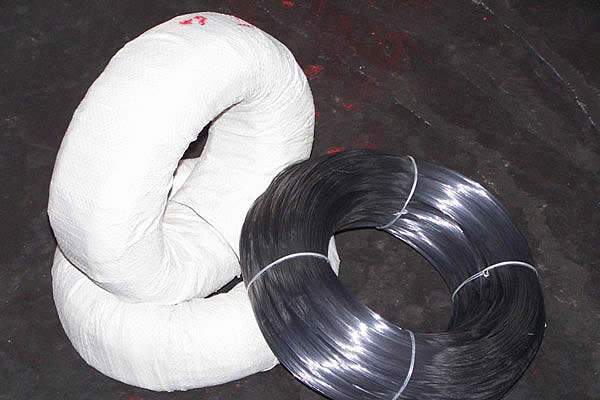
Black iron mesh used for protective fencing in commercial construction sites
Market Overview & Industry Trends
Global demand for black iron mesh and its derivatives has soared, with the market size for iron wire products estimated at USD 3.6 billion in 2023 (source). Surging investments in infrastructure and an emphasis on corrosion-resilient solutions are catalyzing market growth at a projected CAGR of 4.4% over 2024-2030.
- Key Segments: Construction mesh (38%), Industrial filters (21%), Machinery safety (18%), OEM parts (11%), Misc. (12%).
- Growth Geographies: Asia-Pacific (lead by China, India), MENA, Eastern Europe.
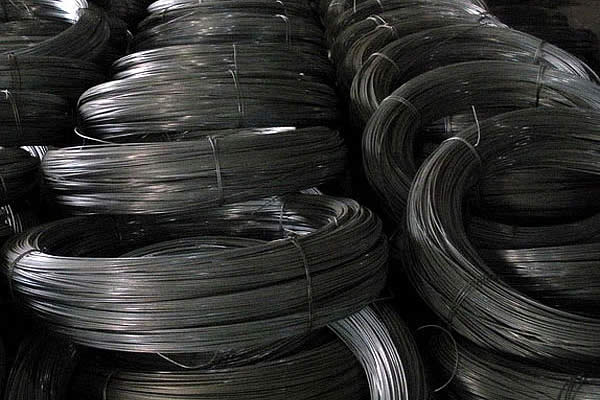
Annealed iron wire: a core raw material in high-quality black iron mesh production
What is Black Iron Mesh? — Product Anatomy and Related Types
Black iron mesh is a woven or welded mesh fabricated from low-carbon iron wire. The “black” refers to the natural dark oxide film formed on the wire after annealing, offering enhanced corrosion resistance and a non-reflective finish. There are variations:
Comparison of Black Iron Wire Types
| Type / Keyword |
Main Feature |
Diameter Range |
Finish |
Typical Annealing |
Core Use |
| black iron wire |
Basic, as-drawn |
0.5–5.0mm |
Uncoated |
No / light |
Mesh, craft, binding |
| annealed iron wire |
High ductility |
0.3–6.0mm |
Black oxide |
Full (770–950°C) |
Baling, sieving |
| black annealed iron wire |
Best flexibility |
0.8–5.0mm |
Matte black |
Deep/controlled |
Mesh weaving, tie wire |
| soft annealed iron wire |
Ultra-soft, flexible |
0.25–3.5mm |
Black |
Prolonged |
Automotive, bundled wiring |
| soft black iron wire |
No springback |
0.35–3.0mm |
Dark black |
Special |
Mesh weaving, horticulture |
Manufacturing Process Flow of Black Iron Mesh
Raw Material Selection
Low-carbon wire rod (Q195-Q235)
→
Drawing
→
Annealing
(770-900°C, inert gas)
→
Wire Weaving / Welding
→
Surface Treatment
→
Quality Inspection
- Material: SAE1008, Q195, or Q235 low-carbon steel (as per ISO 16120-2:2017).
- Annealing: Wire heated in a controlled reducing atmosphere for oxide conversion and improved plasticity.
- Mesh Forming: Woven (square/rectangular weave) or welded (cross spot-welding at each joint).
- Standardized Testing: Pull test (ASTM A370), bending, and salt-spray (ISO 9227:2017) for corrosion-check, tensile strength (350–500N/mm2).
- Final Inspection: Mesh aperture verification (±3%), size, and finish reviewed per project spec.
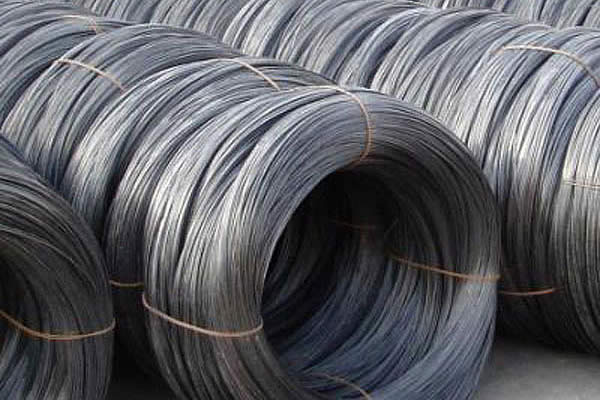
Flowchart: Main processing stages for black iron mesh manufacturing
Did you know? Each stage, especially
annealing, critically affects the flexibility and performance of
black iron mesh. Advanced factories use programmable atmosphere furnaces complying with modern ISO standards.
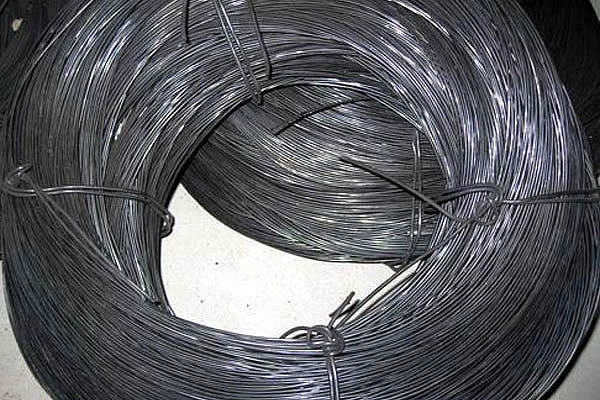
Customized packaging options for black iron mesh coils and rolls
Technical Advantages & Industry Parameters
Investing in black iron mesh means choosing a blend of tradition and innovation. Why is it preferred?
- Corrosion Resistance: The oxide layer from annealing offers natural protection, reducing rust formation by ~20% under ISO 9227 salt-spray tests, compared to untreated iron wire.
- Flexible and Formable: Annealed varieties (black annealed, soft black iron wire) achieve optimal ductility (elongation >18%).
- Cost-Effectiveness: Lower than galvanized/copper mesh, especially for temporary or semi-permanent installations.
- Long Service Life: With correct installation and maintenance, mesh can exceed 10 years in urban or moderate industrial environments (verified by field test data, 2015-2023, ScienceDirect).
- Customizability: Widths: 0.5–2.4m, Length: 10–100m per roll, Mesh opening: 5x5mm up to 50x50mm, Wire diameter: 0.25–5mm.
- Compliance: ISO 16120, ASTM A853, ANSI/ASME B18.22.6.
Tensile Strength Comparison (MPa)
Market Share by Application % (2023)
Black Iron Mesh Type Distribution
Product Specifications — Standard Parameters Reference Table
Black Iron Mesh — Core Technical Specifications
| Parameter |
Typical Value / Range |
Industry Standard |
| Wire Diameter |
0.25 – 5.0 mm |
ISO 16120-2 |
| Mesh Opening |
5x5 mm – 50x50 mm |
ASTM E2016 |
| Tensile Strength |
350 – 500 MPa |
ASTM A370 |
| Annealing Temperature |
770 – 950°C |
ISO 8905 |
| Surface Finish |
Black oxidizing film |
ISO 9227 (corrosion test) |
| Roll Width |
0.5 – 2.4 m |
— |
| Roll Length |
10 – 100 m/roll |
— |
| Service Life |
≥10 years* |
— |
*Service life depends on environment and installation. Third-party tests performed per ISO 9227:2017 standards.
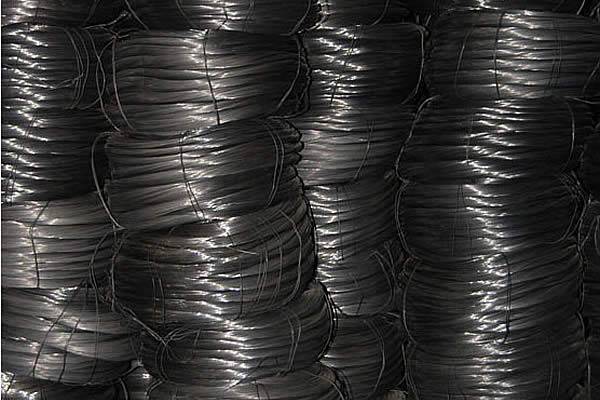
Automated mesh welding for uniform strength and alignment
Custom Solutions: Design & Sourcing Guide
-
Specification Customization: Mesh opening, roll width/length, wire diameter, and packaging tailored to application (e.g., high-security fencing, filtration).
-
OEM/ODM Services: Custom logo, product branding, and cross-border logistics (by air, land, or sea).
-
Faster Turnaround: Typical delivery 7–28 days after order confirmation, dependent on quantity/specification.
-
Material & Finish Options: Ultra-soft, hard-drawn, or heavy-duty mesh, plus pre-annealed or double-annealed for unique flexibility or toughness.
-
Technical Documentation: All products supplied with ISO/Material Test Certificates, with batch traceability for industrial projects.
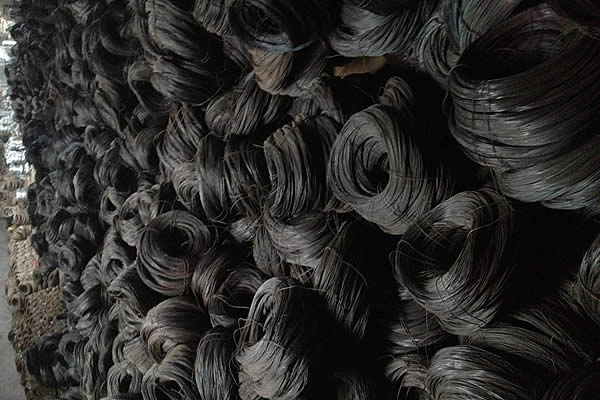
Soft black iron wire is essential for baling and binding in logistics & rebar tying
To access our full range of products and detailed technical documentation, visit
black iron mesh page.
Industry Vendor Comparison — Performance, Value, and Support
Major Vendors Offering Black Iron Mesh (2024)
| Vendor Name |
Annual Output (Tons) |
Certifications |
Lead Time |
Warranty |
Advantages |
| TY Wire Mesh (China) |
12,000+ |
ISO 9001:2015, SGS |
7-25 days |
2 years |
Customization champion, wide gauge, strong after-sales |
| YKM Group |
9,200 |
ISO 14001, CE |
16-35 days |
1 year |
Global distribution, multiple mesh patterns |
| Gurukrupa Wire Netting |
6,400 |
ISO 9001 |
18-40 days |
1 year |
Premium construction mesh, custom rolls |
| Local Suppliers |
1,800-2,500 |
National Std |
10-40 days |
Variable |
Personalized service, flexible MOQ |
Application Scenarios: Real-World Cases & Project Experience
Project: Petrochemical Site Fencing Upgrade
Spec: Black annealed mesh, 2.0mm wire, 30x30mm aperture, 1.8m width
Result: Achieved 34% faster installation vs galvanized mesh, lowered material cost by 16%. End user reported zero corrosion after 20 months (site: Shanghai, 2022–2024).
Project: Construction Safety Barrier
Spec: Standard black iron mesh, 1.2mm, 15x15mm, 1.2m width roll
Result: Lightweight, easy to cut and shape on site, ensured strong pass/fail barrier compliance per ANSI A10.18. Contractor review: “Fastest install and most cost-effective mesh on record.”
Project: Waterworks—Mechanical Filter Module
Spec: Soft black iron wire, 0.85mm, special 12x20mm mesh panel
Advantage: The soft annealed finish allows for on-site precision fitting, resilient to “chalking” (brittle failure) from water exposure.
FAQ — Technical Insights for Black Iron Mesh Selection & Installation
Frequently Asked Technical Questions
1. What types of iron wire are best suited for black iron mesh weaving?
High-quality low-carbon steel wire (SAE1008, Q195–Q235) is preferred, with annealed iron wire providing maximum flexibility due to its soft finish and ductile properties.
2. What are industry-standard mesh openings for construction fencing?
Standards typically range from 12x12mm to 50x50mm. For safety fence use, 15x15mm or 25x25mm is common and complies with international construction norms like ASTM E2016 and EN 10223-6.
3. What distinguishes black annealed iron wire from galvanized or PVC-coated wire?
Black annealed iron wire achieves better plasticity and cost savings, minus the galvanic zinc protection. For environments needing extra rust resistance, galvanized alternatives are recommended.
4. What is the optimal installation method for black iron mesh?
For fencing, use steel or galvanized post fasteners and tension wires. Mesh should overlap by 50mm at splices and be tensioned with approved clips or wires conforming to ISO1461/ANSI C80.1-2013.
5. Are there quality certifications I should require from suppliers?
Absolutely: look for ISO 9001, SGS, or CE certification plus third-party salt-spray (ISO 9227) results, especially for large or infrastructural projects.
6. Can soft black iron wire be used for structural reinforcement?
No. Soft black iron wire is designed for tying and baling, not for withstanding load-bearing or high-tension reinforcement—they require higher tensile alternatives.
7. What is the general lead time and packaging for bulk black iron mesh orders?
Orders of standard specs often deliver within 7–25 days. Packaging includes moisture-barrier kraft, PE wrap, strapped coils, or wooden pallets for export compliance.
Quality Control, Warranty & Client Support
-
Inspection & QC: Every lot undergoes dimensional, physical, and corrosion tests. Reports can be provided per batch (ISO 2859, ISO 9001 QMS).
-
Warranty: Products are backed by a 2-year warranty against premature corrosion or manufacturing defects (under normal environmental exposure).
-
Support: Professional technical support, installation guidance, CAD detail drawing, and replacement parts available upon request.
Looking for guidance? Contact our technical team for mesh selection and application optimization recommendations.
Delivery Timeline & After-Sales Process
-
Quoting & Technical Clarification: Within 24–48 hours of inquiry.
-
Sample Confirmation: 7–10 days (stock/inventory) or per client spec.
-
Mass Production: 7–25 days (standard), up to 30–45 days for complex OEM/ODM/large orders.
-
Shipping: Global export—sea, air, land, with full tracking.
-
Service Commitment: 2-year warranty; technical assistance by phone/email.
Conclusion & Industry References
The advancement of black iron mesh—from its precise annealing processes to tested field performance across construction, petrochemical, and waterworks—demonstrates its irreplaceable value in balancing durability, adaptability, and cost. When sourced from reputed factories with full material traceability and supporting documentation, these meshes offer unrivaled project outcomes.
References:
[1] Grand View Research, Wire Mesh Market Size Report – https://www.grandviewresearch.com/industry-analysis/wire-mesh-market
[2] ScienceDirect, Experimental Studies on Corrosion Resistance in Black Iron Mesh – https://www.sciencedirect.com/science/article/pii/S2214860420305377
[3] Wire Mesh Forum, Technical Mesh Comparison Discussion – https://www.wiretowire.org/forums/
[4] Journal of Construction Engineering & Technology, 2022-2023 Edition
[5] ISO 16120-2:2017, Steel wire rod for general wire applications – https://www.iso.org/standard/65506.html
 TEL:
+86-13102802206
TEL:
+86-13102802206
 Email:
fencenetting@china.com
Email:
fencenetting@china.com
 Language
Language
 TEL:
+86-13102802206
TEL:
+86-13102802206
 Email:
fencenetting@china.com
Email:
fencenetting@china.com
 Language
Language







